“Growing in the face of challenge” – Rose Hill tree planting
A short film about the Tree Planting and Community Orchard project from Rose Hill & Iffley Low Carbon. The film was made with a Small Grant of £500 from Low Carbon Hub Community Grants Fund.
Low Carbon Hub were delighted to award Rose Hill & Iffley Low Carbon (RHILC) a small grant of £500 in December 2020 to make a short film of their extensive tree planting project and community orchard in Rose Hill. The film titled, “Growing in the Face of Challenge” warmly documents a wonderful example of diverse communities working together with a shared purpose of alleviating the climate emergency locally by increasing the number of trees in the UK.
The film is now ready for release and can be viewed here:
The film was produced by Lizzie Couves, Community Assistant at Rose Hill Community Centre and a member of RHILC. Lizzie submitted an excellent grant application, explaining that the aims of the film were to tell the story of a community taking action against climate change and their determination to reach out to all groups in the community who don’t necessarily see themselves as environmentalists.
The tree planting project provided a practical way of engaging the whole community to raise awareness of the damage sustained by the environment and to have the opportunity to take action together to reduce the impact.
The film will form part of the exhibition by the CAG Network, “From The Ground Up” at The Old Fire Station, Oxford, opening September 2021.
The exhibition will showcase the work of 20 community groups across Oxfordshire to reduce the effects of climate change. Low Carbon Hub are proud to have contributed funding to the exhibition through a large grant awarded to a consortium of it’s community groups taking part in the project.
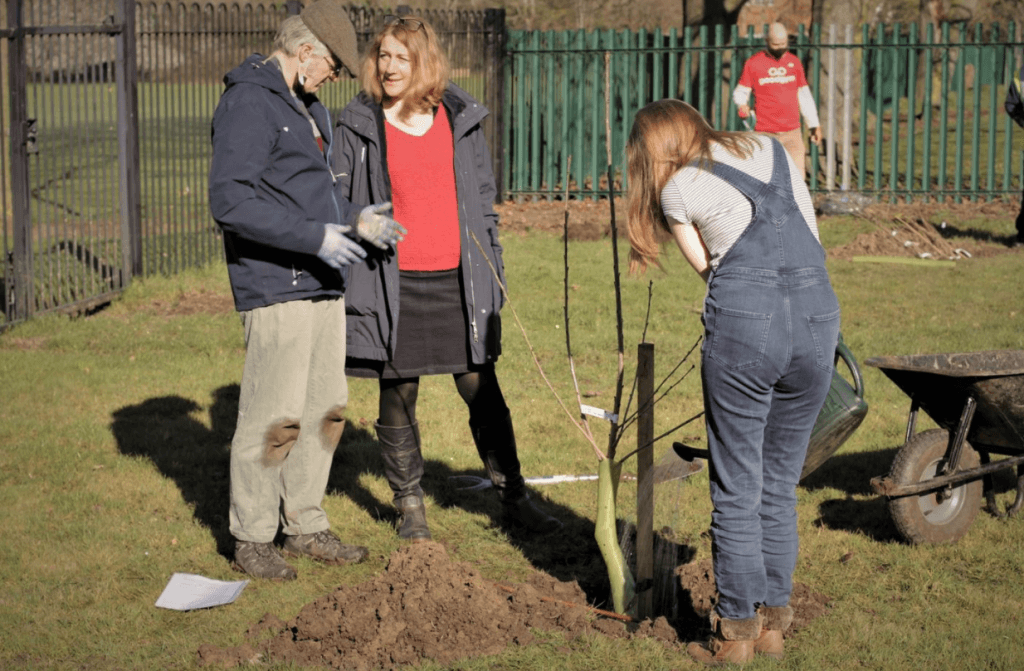
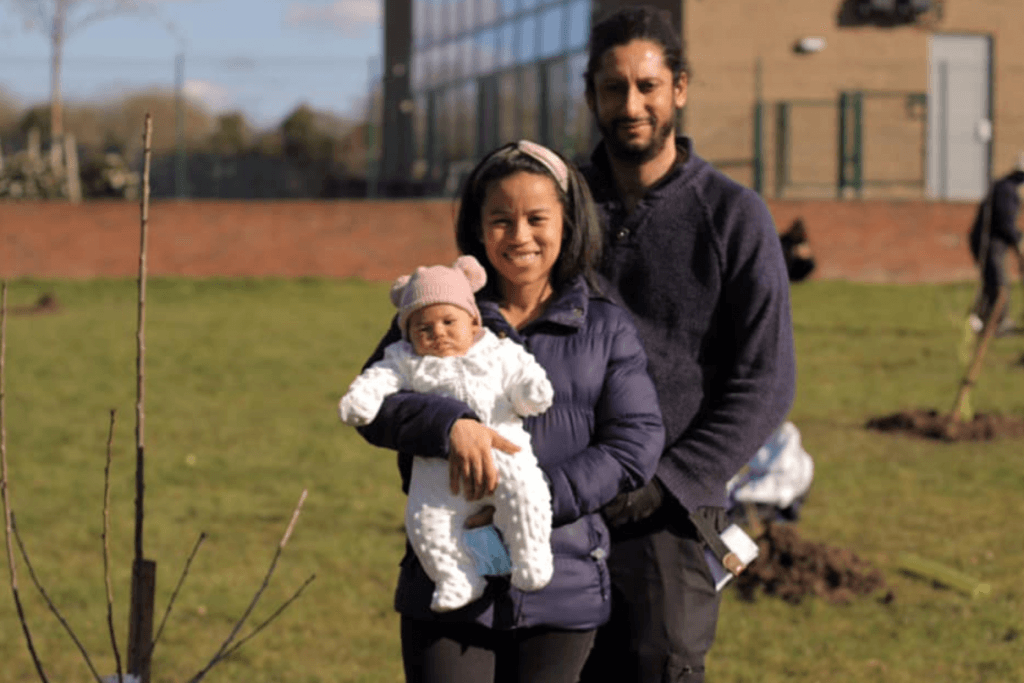
A whole community approach
Members of RHILC took the brave decision to focus the main narrative of the film on learning from past mistakes. It tells the story of how they used their experience and learning in a positive way, changing their approach to form lasting relationships with many different groups in their community, all with the common aim of helping the environment.
Planting a tree means that you can believe in and care about a world that will be there after you have gone
‘English Pastoral – An Inheritance’ by James Rebanks, published by Allen Lane 2020
The tree-planting project began in 2015 and unfortunately, some vandalism meant several of the trees were uprooted and needed to be replanted. Although disappointed by this, RHILC concluded that they had not sufficiently engaged the local community to become involved in the project and resolved to reach out again and actively include more groups in the planning and decision-making stage.
They energetically involved groups of young people in all aspects of tree planting, from preparatory hole digging to mulching and ongoing tree care. Sharing information with young people on how to look after the trees proved to be a turning point and the following planting sessions involved the local youth groups, primary school children and the youth football team.
From November 2019 onwards a further 600 trees were planted by over 100 local people. This time most of the community were so engaged that during the long dry spells in 2020, over 30 residents came together and volunteered to water all the newly planted saplings. Three households, whose gardens backed onto the recreation ground, made their water supply available to assist in the project and save the saplings. It was an act of fantastic cooperation and community spirit inspired by a renewed sense of pride and ownership of the local environment.
Young people became particularly enthused this time and teenagers from Youth Ambition planted more trees in March 2020.
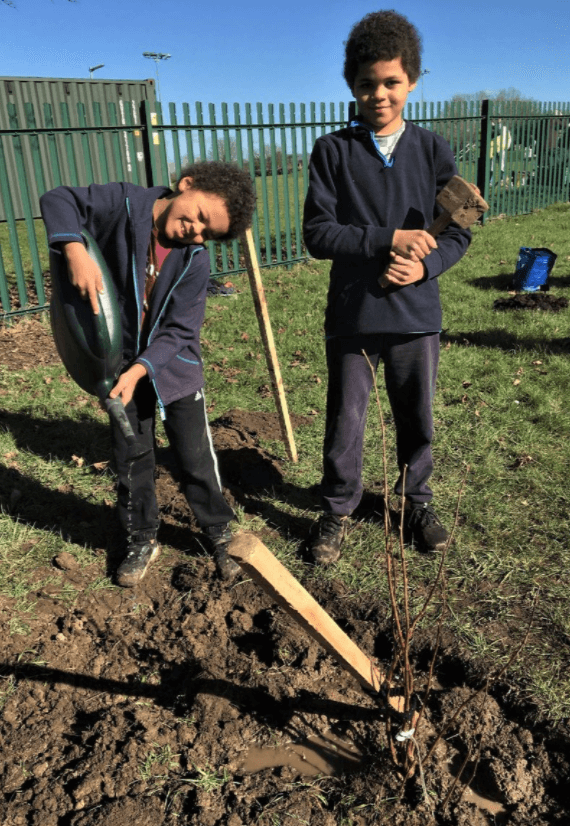
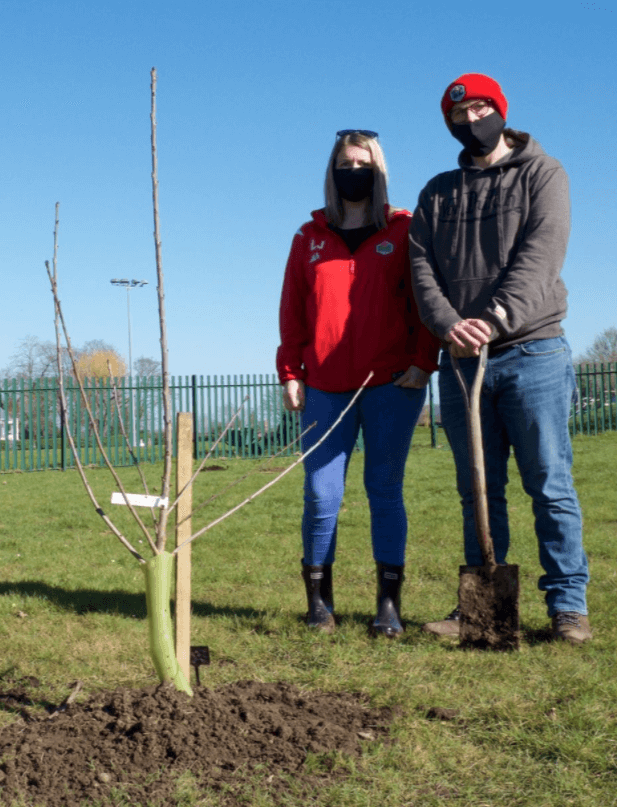
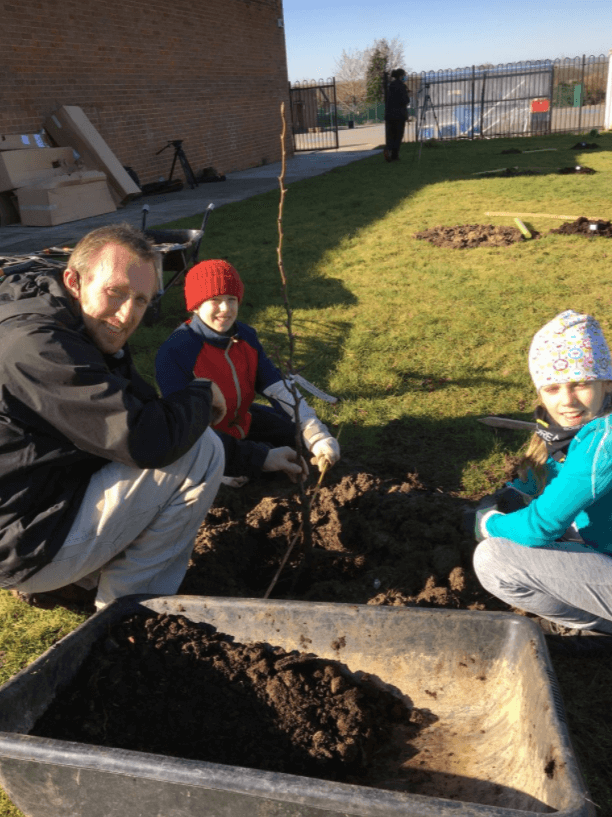
The making of the film
The film was directed and edited by Will Dennies who had previously worked with RHILC on their video entry to the Oxford Bus Company competition, (also funded by Low Carbon Hub), Brand The Bus campaign. He made the film at a reduced rate as it was for a community cause and was helped by a great and enthusiastic team of volunteers from RHILC. Among them, Eleanor Watts developed the concept, Sabine Huth-Rauschenbach wrote the script and a young photographer, Benedict Robbins, took the stills and accompanying photographs.
The main filming for the video took place in early 2021 with an initial hole digging day to prepare for subsequent planting of 30 fruit and nut trees on the recreation ground near Rose Hill Community Centre under Covid restrictions. 34 oak trees were also planted. Fifteen local community groups each sent a representative to plant and look after their own adopted tree, including:
- Rose Hill Community Network,
- Rose Hill Youth Football Team,
- Rose Hill Primary School
- Rose Hill Community Centre and Junior Youth Club,
- Rose Hill Allotments,
- Rose Hill Methodist Church,
- St Mary’s Church,
- Rose Hill Muslim Community
- Rose Hill Nepali Association,
- Syrian Sisters,
- Friends of Rivermead Nature Park,
- Friends of the Fields, Iffley
- Rose Hill Runners,
- Rose Hill Good Gym
- Katie’s Nursery.
RHILC featured each community group on their Facebook page to tell their story. This proved a great way to maintain interest in the project and helped volunteers to feel valued and glad to take part.
It was fantastic to witness so many diverse groups, families and children working together and having fun planting and nurturing the trees.
As one enthusiastic father put it: “Doing the mulching, putting the manure on, it was just a wonderful, grand community thing”
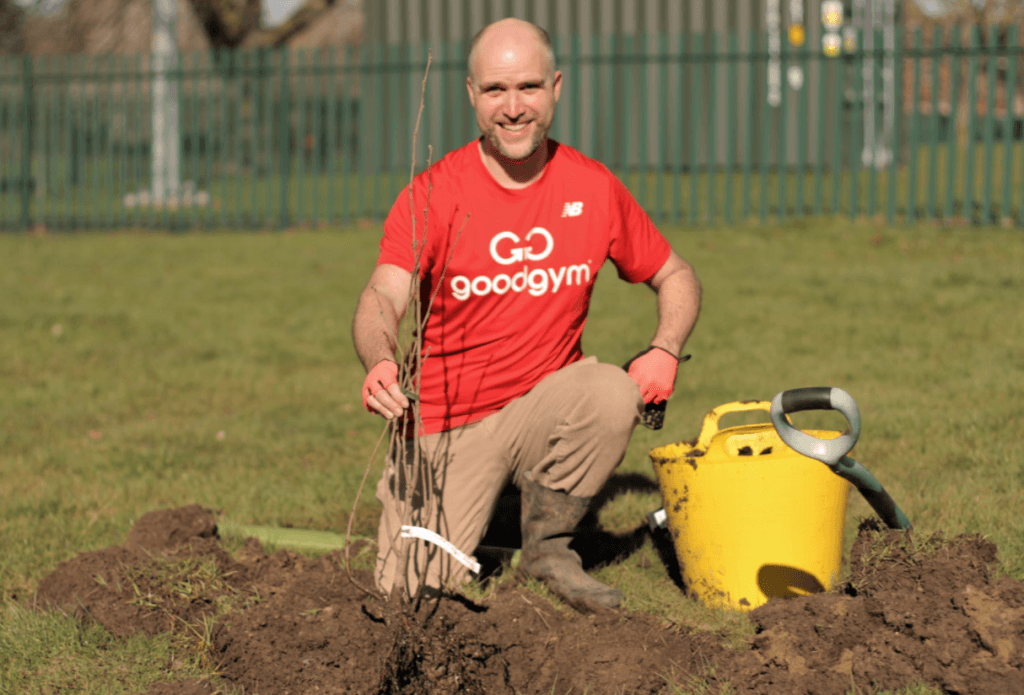
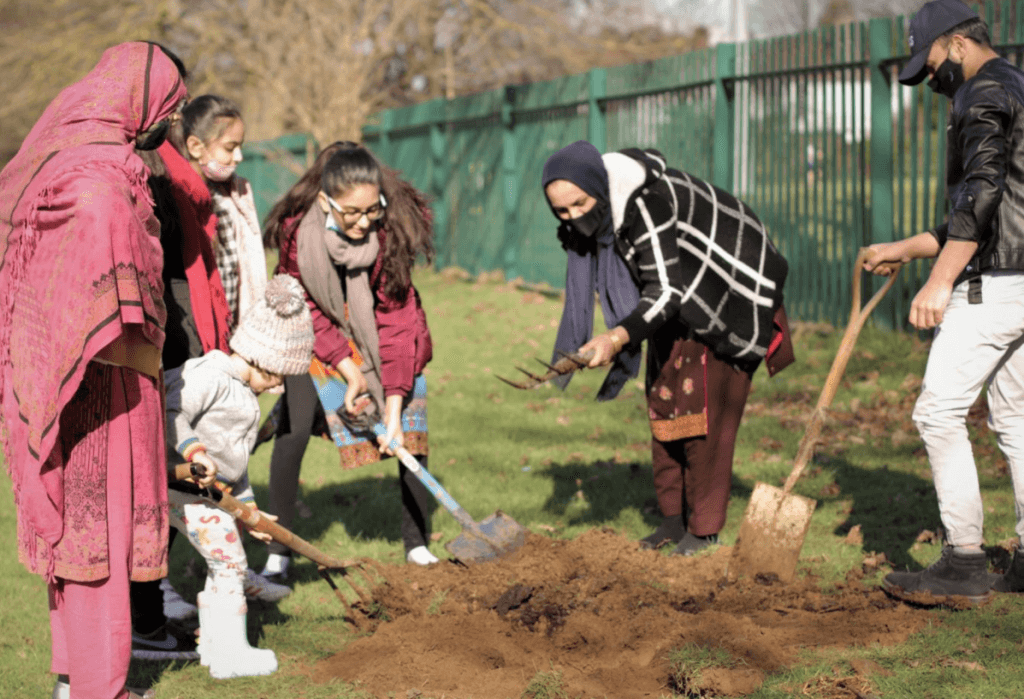
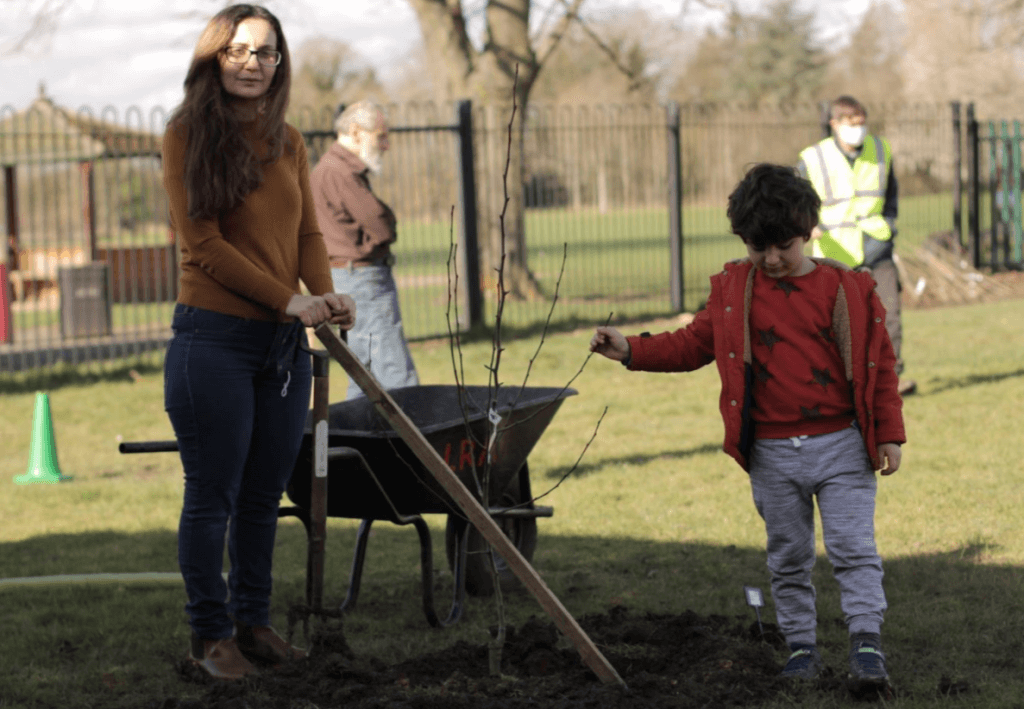
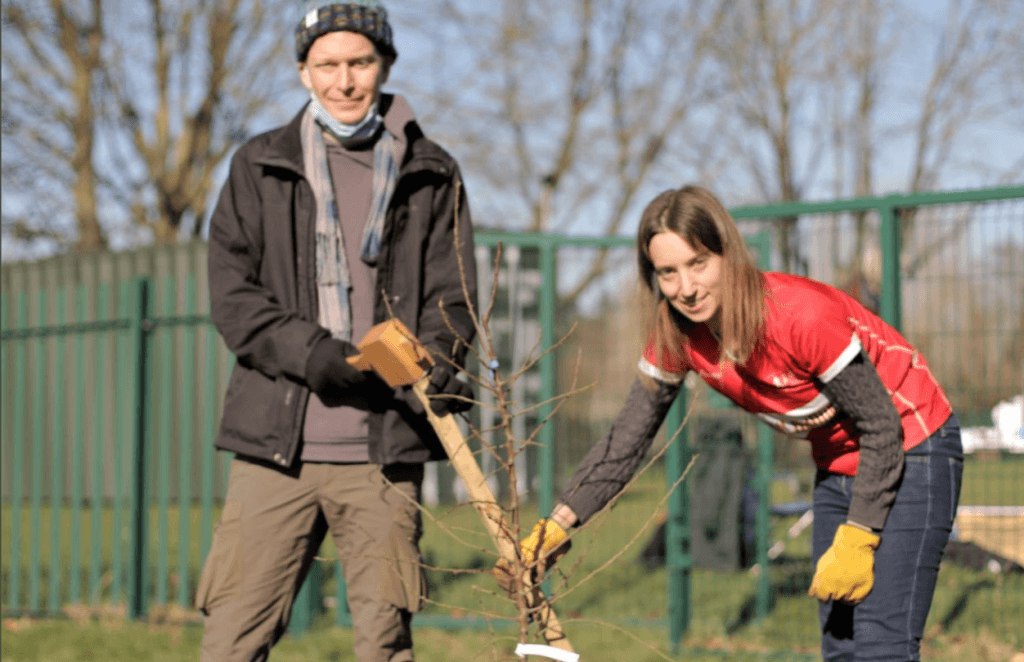
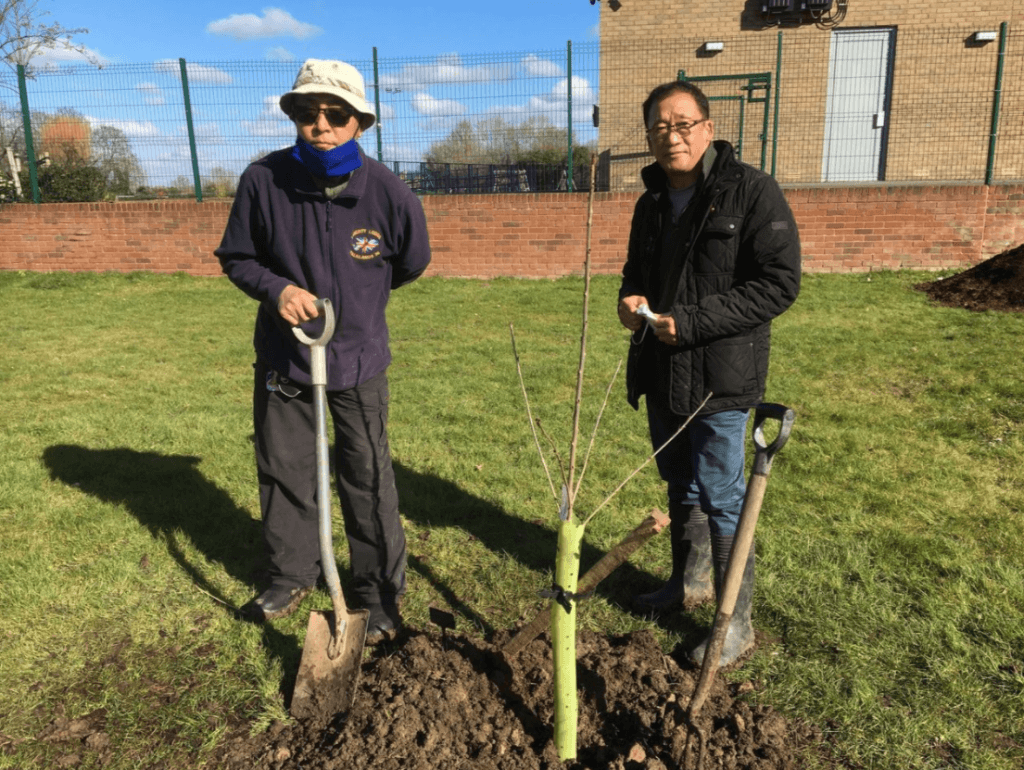
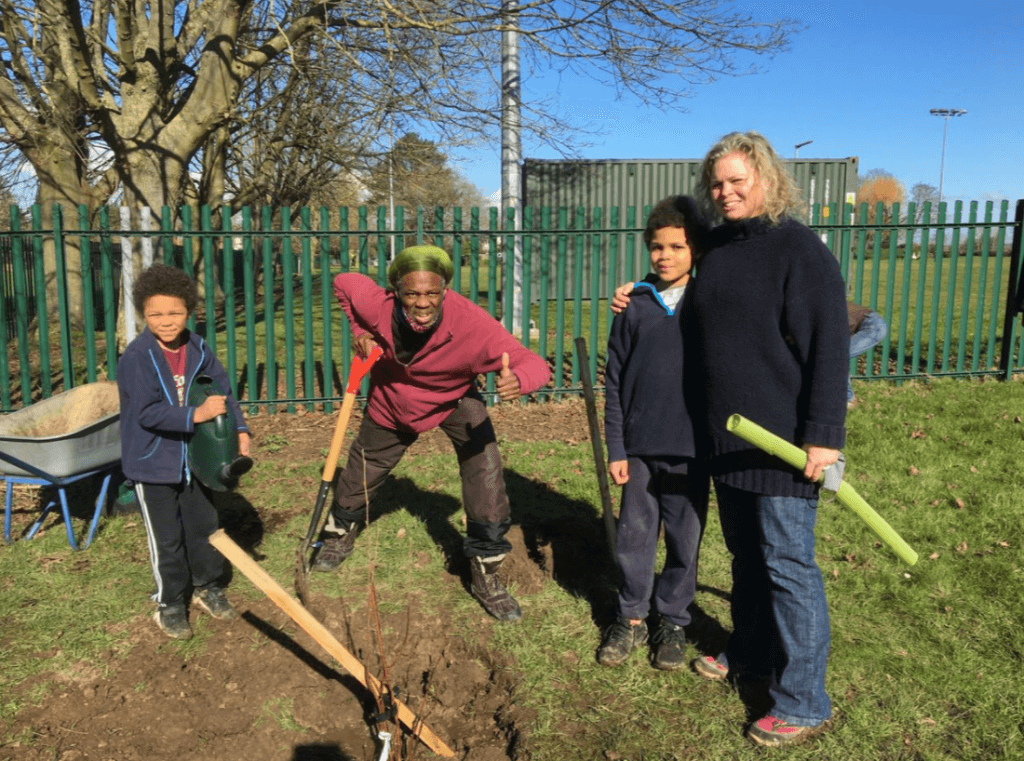
This short film captures the journey of RHILC taking positive action towards a low carbon future and stresses the importance of involving everyone in the issues brought about by climate change. It shows that we can all take action together in our communities and one of the best things about this project is that it will last long into the future.
In the words of the film from Sabine Huth – Rauschenbach: “The trees will continue to grow along with the community.”
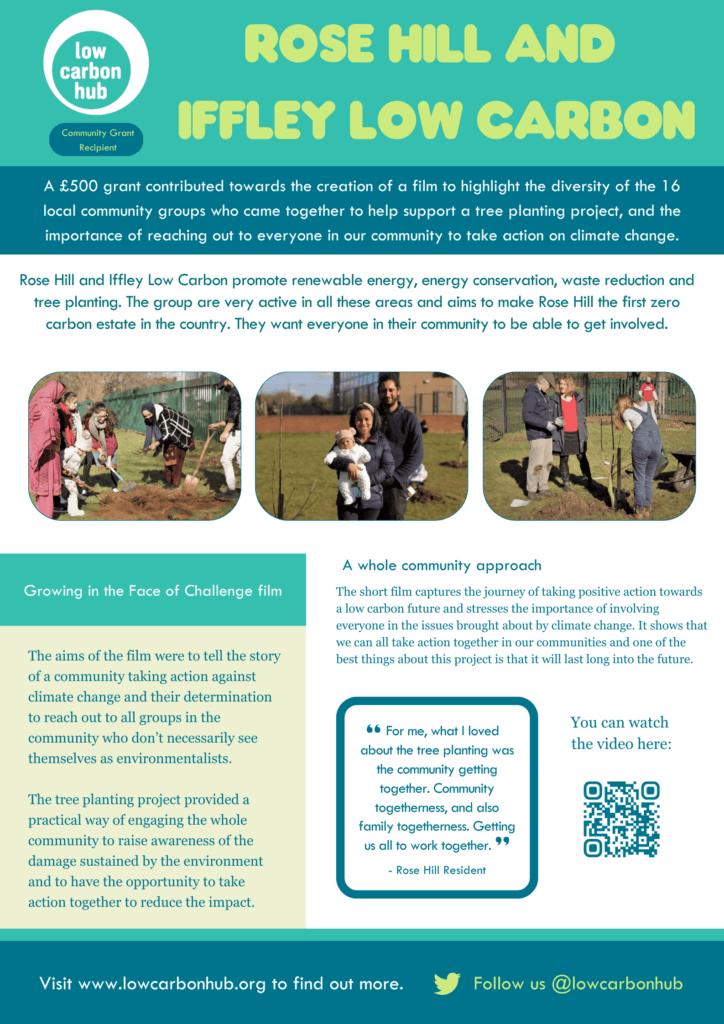
Could your community save money on energy and cut carbon emissions?
If you have any questions about saving energy or developing your own community-owned renewable energy project, we’re here to help via our Helpdesk.
